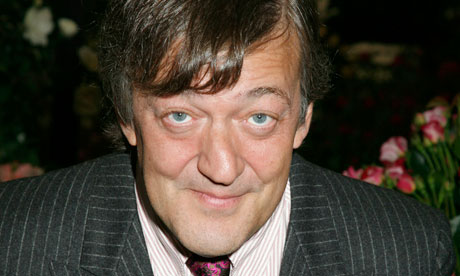
In the midst of doing publicity for my book Sane New World, I'm endlessly asked about my depression, even though it is not particularly about mental illness but rather how all of our minds/brains work and how, with practice, we can drive them rather than be driven by them. Many of us find ourselves in a frenzied state of busy-ness, fuelled by our own critical voices with absolutely no instructions on how to brake until we break (Gandhi said there was more to life than speed, but he didn't tell us what).
I was outed five years ago by Comic Relief when they put a gigantic poster of me around London with the words: "This woman has mental illness – please help her". I was mortified, so decided to write a show and pretend that the poster was advertising it. I did the show for two years in psychiatric institutions and for the last three toured it in theatres from Sydney to LA.
Another question I am regularly asked is if comics have more depression than everyone else. I'm hoarse from saying that one in four people globally have some sort of mental illness. There are not that many comedians in the world. Surprised? Comics may be neurotic or self-obsessed, but depression isn't about having a bad hair day. In actuality it feels like your old personality has left town and you've been replaced by a block of cement; indifferent if you win the lottery or fall off a cliff. It doesn't care if you're famous, live in a mud hut or what colour you are; depression just loves everyone.
If you look into the eyes of someone with depression there's no mistaking they have it; it's the expression of a dead shark. I started to feel better when I found my tribe, with their dead shark eyes matching mine. The shame lessens when you realise you're not making it up, rather than being told to "perk up" by friends and family. Fellow sufferers will never get bored with conversations about drugs, voices and heartache. They will relate and resonate with you, holding your hand through the agony.
It's my mission that everyone who suffers any type of mental anguish, from high stress or burnout to actual depression, could have a place to meet – to talk, compare symptoms, advise and empathise; a walk-in centre similar to Alcoholics Anonymous. I always ask, slightly jokingly, how did they get so organised and create so many on every corner, more than Starbucks, when most of these people are drunks? Why can't the one in four pull that off?
It would be such a leap for humanity to start such walk-in centres for the one in four throughout the UK. People who own hair salons, cafes, whatever, could open their doors once a month to let in the bemused and bewildered for an evening, with professionals to moderate the meetings. When I did my show in London, Marjorie Wallace, chief executive of Sane, brought in her volunteers once a week so that people could get the advice they so badly needed. Most of us have no idea how to deal with mental problems and don't know where to go to ask about it.
On a more flippant note, maybe we could emulate the gay movement and their liberation. Let's find out where they keep the old rainbow banners and high-heels that they wore on parades, get them out of storage, put them on and march to parliament screaming: "We are the one in four – mentally ill and proud – stop the stigma."

